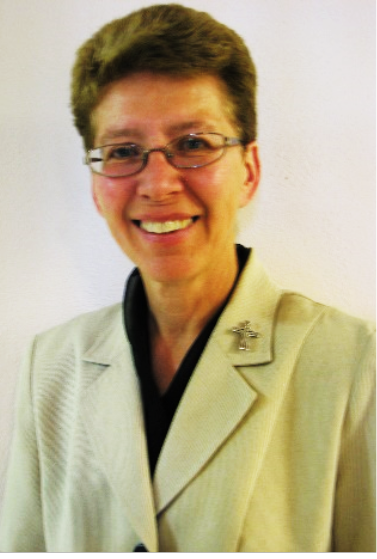- By Sr. Mary Valerie Schneider
My home is situated on roads lined with the most colorful trees in Whitehouse, Ohio. Looking out my window or walking or driving down the road provides a panorama of spectacular colors. But not this year. My throat doesn’t catch in an intake of surprise. Rather I feel disappointed at
- By Sr. Mary Valerie Schneider
We are in the midst of a Synod on Synodality. Perhaps its outcome will have far-reaching impact for Catholics around the globe. But the full effects of the synod may take years, and historians decades from now may be better equipped to report the synod’s results. The same was and
- By Sr. Mary Valerie Schneider
Autumn has arrived and with it my annual thoughts about breakfast cereal. (You’re saying “What?”) Well, I can’t help it. When I see straw bales, I immediately think of the Shredded Wheat that I ate as a kid. Anyone remember that cereal? The soft crunch of leaves underfoot reminds me
- By Sr. Mary Valerie Schneider
In 1850 two teachers at St. Lambert School in Coesfeld, Germany, professed vows of poverty, chastity, and obedience. They exchanged their baptismal names Hilligonde Wolbring and Elizabeth Kühling to their religious names Sister Maria Aloysia and Sister Maria Ignatia, respectively. And the congregation of the Sisters of Notre Dame of
- By Sr. Mary Valerie Schneider
We rarely, if ever, picture Jesus as ranting and raving. But that’s the picture today’s Gospel presents. Jesus is outraged that anyone who has experienced God’s abundant blessings would dare to limit what God could do with those blessings. His language is graphic, and the message is clear: Whoever does
- By Sr. Mary Valerie Schneider
Last week we heard this paradox: Lose your life to save it. This week we have another paradox: to be first, be last. Jesus gives the example of bending down to a child. Bending down is one way to care for creation. We bend down to weed, to plant seeds,
- By Sr. Mary Valerie Schneider
Today’s readings are quite insistent and very direct. We must give necessities like food, clothes, and shelter to those in need. In addition, we must deny ourselves and take up our cross; that is, we must lose our life if we want to be faithful disciples. Another way to say
- By Sr. Mary Valerie Schneider
Jesus had unusual healing methods; namely, fingers in ears and saliva on tongues. Such methods show how very involved Jesus gets with us in his and our humanity. We may not cure those who cannot hear or speak, but we have a responsibility to improve people’s lives. How? First, we
- By Sr. Mary Valerie Schneider
Today’s gospel focuses on the Pharisees who kept every detail of their traditions, such as washing cups and jugs. Meanwhile, Jesus’ disciples aren’t even washing their hands before eating. What’s the point? While the first group does good things, they disregard God’s commandments in more important things. The Pharisees choose
- By Sr. Mary Valerie Schneider
The foundresses and their early companions had been trained in Munster by the immediate successors of Bernard Overberg, “master of the schoolmasters.” In contrast to public school teaching in America, the sisters’ teaching was oriented to the development of the human person founded in the Gospel. Children learned that God





